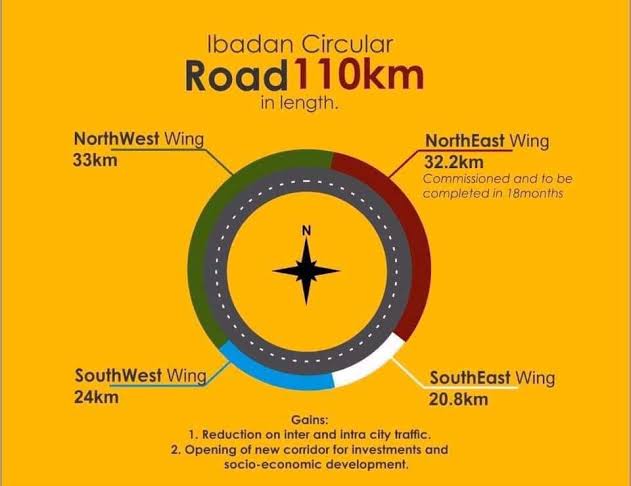Protests and rising discontent among residents affected by the Ibadan Circular Road project have slowed construction and, in recent times, triggered traffic disruptions across strategic corridors in Ibadan. While the agitations stem from legitimate concerns about compensation and community impact, the growing unrest risks sliding into a political flashpoint, one vulnerable to manipulation by actors seeking to weaponize public sentiment against the government.
Those familiar with Ibadan’s political history understand the stakes. The city has long served as a barometer for South-West political temperature, from the old Western Region era to contemporary party blocs. Its streets have, time and again, been arenas where alliances are tested, influence is projected and regional direction is shaped. To downplay the present tension is to overlook a pattern that has defined the city’s political identity for decades.
Yet, beyond the politics lies an infrastructure project with transformative potential. The Circular Road, if delivered, promises smoother traffic flow, enhanced connectivity and broader economic opportunity for Ibadan and Oyo State. It will ease mobility for workers, students, traders and commuters, critical in an era of escalating transportation and living costs. When fully actualised, it could open markets, improve access to healthcare and education, and raise the overall quality of urban life.
Development, however, must not trample on rights or livelihoods. Nigeria’s Land Use Act of 1978, alongside international standards, affirms the right of government to acquire land for public use, but only with prompt, fair and adequate compensation. The Nigerian Constitution, through Section 43, reinforces that no citizen may be dispossessed without due and equitable payment. Oyo State’s own urban planning frameworks also emphasize consultation, transparency and sustainability. These legal and ethical obligations form the backbone of trust between government and the governed.
Still, implementations are rarely straightforward. Governments often contend with conflicting data, manipulated narratives and representatives who may not act in the collective interest of their communities. On the other hand, residents bear genuine emotional and cultural ties to their land, attachments that cannot be reduced to spreadsheets or valuation reports. Meanwhile, political detractors exploit these complexities, escalating tensions and deepening mistrust.
To forestall further breakdown and ensure that the project is delivered without compromising citizens’ rights, the Oyo state government and affected residents, must adopt a more deliberate, structured and collaborative approach.
The following steps provide a pragmatic pathway:
• Transparent, inclusive compensation systems:
Appoint reputable professionals and institutions to conduct verifiable valuations using modern, low error methods, with clear timelines and compensation or resettlement procedures.
• Continuous community dialogue:
Establish regular engagement channels where grievances can be heard and jointly resolved, rebuilding trust and ensuring that affected residents have a voice in the process.
• Independent oversight:
Invite civil society groups, legal practitioners and urban planning experts to monitor compensation processes and ensure compliance with standards.
• Public awareness campaigns:
Educate residents on their rights, the benefits of the project and realistic timelines to curb misinformation and political manipulation.
• Mediation and Conciliation Committee:
Create a neutral body of respected professionals and notable Ibadan indigenes to mediate between parties.
• Community development agreements:
Negotiate structured agreements that guarantee long-term benefits, beyond compensation, for affected communities, including infrastructure, social services or economic support.
Residents, on their part, must provide accurate information, engage constructively and resist pressures from political actors seeking to inflame tensions for personal gain.
Despite the charged atmosphere and the volley of accusations among stakeholders, optimism is still warranted. A peaceful resolution rooted in fairness, transparency and shared responsibility is possible. The social contract between government and citizens demands that both sides uphold their obligations.
Our children, and generations yet unborn, deserve a city where development is both progressive and humane, and where dialogue triumphs over division.
Aderonke is an Expert in Law, Inclusion and Community Development






